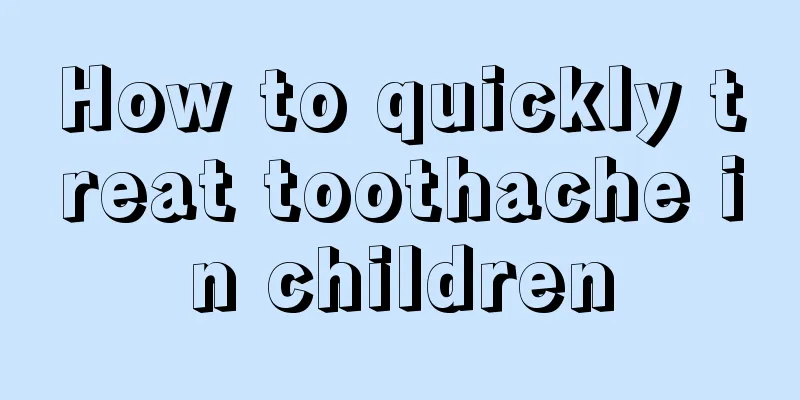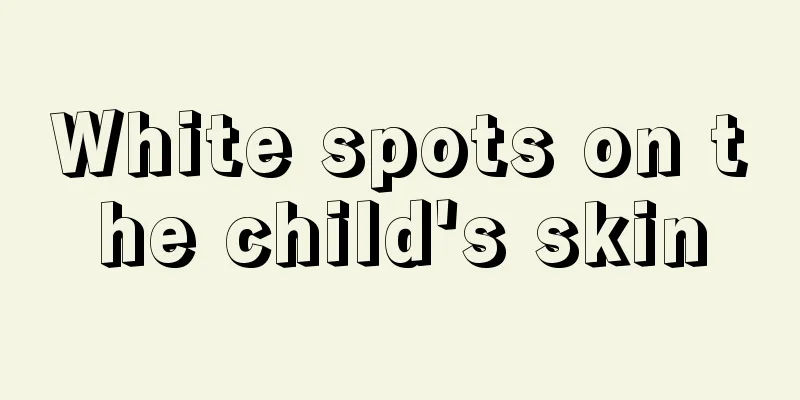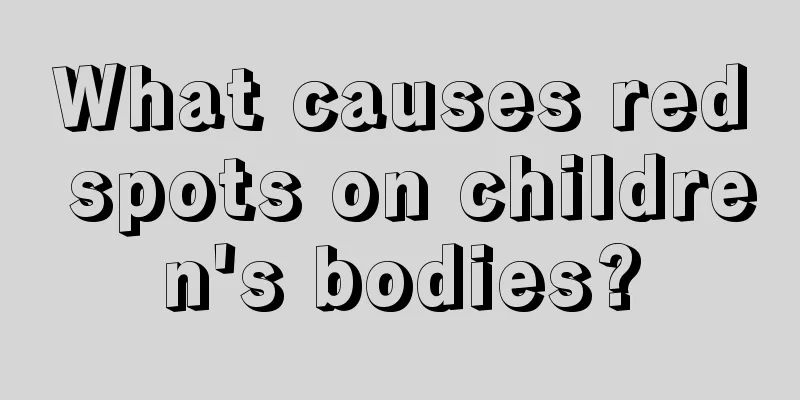What are the symptoms of baby teething?

|
After a baby is born and grows up, there will be corresponding things to do at certain stages, which is an experience for both the baby and the mother. For example, during the teething period, babies cannot speak yet, so the pain caused by teething depends on the mother's judgment. Every baby is different, and the performance during the teething period is also different. The following is an introduction to the performance of babies during the teething period: 1. Drooling a lot When a baby's teeth erupt, it stimulates the gingival nerves, causing increased secretion of the salivary glands, and the baby will drool. Some babies secrete more, which causes the skin around the mouth to become rough, cracked, and even develop rashes due to the constant stimulation of saliva. 2: Red, swollen and painful gums Sometimes you will see some bruises or redness on your baby's gums, and occasionally blood spots. In severe cases, the swollen and painful gums will also spread to the ears and areas around the face, and the baby will then show small movements such as pulling his ears or rubbing his cheeks. 3. Chewing anything that comes into the mouth From biting their own hands, to biting their mother's nipples, and even biting strangers' fingers. He or she will chew on anything that comes into their mouth to relieve pressure inside their gums and make themselves feel more comfortable. 4. Irritability When the deciduous teeth slowly push out of the gums, the pain may intensify. The baby cannot express the pain with words, so he will become irritable, angry, and cry. Mothers will also feel that their children are not as well-behaved as before. 5. Loss of appetite Teething babies often become fussy when feeding. He may appear eager to suck milk because he wants to put something in his mouth, but once he starts sucking milk, the sucking action will cause pain in his gums, which will make the baby refuse food. 6. Diarrhea Some babies experience diarrhea when they are teething. This is because when the baby is teething, there will be too much saliva, and swallowing too much saliva may cause a slightly lower appetite or loose stools. 7. Fever Some babies may also have a fever when teething. In fact, fever is only a symptom, not a disease itself. It represents the body's response to inflammation, which is a good phenomenon. Infection, trauma, etc. can cause inflammatory responses, and teething is a minor traumatic process. 8. Sleep may be affected The most common situation where teething affects sleep is when the first tooth and molars come out. The pain will cause the baby to wake up suddenly at night. At this time, do not rush to coax him or feed him. See if he can settle down by himself. |
<<: What is the reason why my baby coughs?
>>: What are some tips for treating baby’s cold cough?
Recommend
How much rice cereal should a six-month-old baby eat?
After the baby reaches 6 months old, in addition ...
The child has a fever of 39 degrees and is convulsing
It is common for children to catch a cold and hav...
What to eat when children stay up late
Staying up late is harmful to the health of adult...
Why is my eight-month-old baby crying in the middle of the night?
As the baby grows day by day, life gradually begi...
What are the developmental indicators of eight and a half month old babies?
Every child is an angel, and the birth of a newbo...
What should I do if my child’s wound becomes festered?
In life, we often suffer from wounds of varying s...
At what age do girls usually stop growing taller?
For girls, if they have a tall figure, they will ...
What's wrong with a newborn baby crying after pooping?
It is very common for newborns to poop, but it is...
What are the symptoms of lysine deficiency in children?
Human life activities require many kinds of amino...
How to treat lymph node disease in children?
Lymph nodes are not actually a disease, but lymph...
How to enhance your baby's immunity
The physical health of babies is inseparable from...
Why does my child's fingertips hurt?
Some children may experience pain in the fingerti...
Treatment for separation anxiety in young children
When children reach the age to go to kindergarten...
What is the definition of premature babies?
We all know that women have to go through ten mon...
What should I do if my six-year-old child is constipated?
The physical health of children has always been a...









